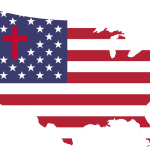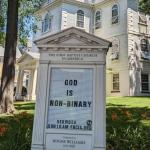A couple of weeks ago, Tony Jones posted an introductory video to a new book by Geoff Holsclaw and David Fitch called Prodigal Christianity. I posted my initial thoughts, and then began a conversation with Geoff about the book via email. I told Geoff that I would read the rest of the book, and then try to write a review. But, once I got the book and starting reading it, it felt like I was being taken back in time three years. I hope that doesn’t sound condescending, so let me explain:
When my family and I left “the church,” I had spent the previous several years heading in a certain direction theologically. The understanding of gospel and mission that I was attracted to – and what I felt best represented what the Bible was all about – was influenced by Lesslie Newbigin, N.T. Wright, Chris Wright, Tim Keller, Michael Goheen, Michael Frost, Alan Hirsch, Brian Walsh, and many other similar thinkers. But, for me, theology was not a solely intellectual thing. I had made a commitment to not only learn things but to embody them. So, while I was on staff at a large neo-Reformed church, I was also teaching classes and leading a community group in our home, trying to live out the kinds of things I was learning with a group of people.
Reading through this book has been a sort of deja vu. I’m not sure how different the authors’ understanding is from where I was three years ago. If I would’ve come across this book back then, I’m sure I would’ve endorsed it wholeheartedly, and it would have become part of the “curriculum” for my own teaching and practice.
I have sat down several times and tried to write a review of the book. If I could put it all together, I have several posts worth of content. But, to be honest, it’s been so weird for me to have this experience that I’m not sure how capable I am of doing that. Or how helpful to anyone it would be. So, rather than doing that, for now, I’m just going to take a couple of posts and respond to a couple of things in the book.
This first post is a response to an idea in the book that suggests that what loosely goes under the names “emergent” or “emergence” or “emerging” is not “capable of providing direction” as a “way of thinking about church in mission.” Basically, the authors are trying to recognize and praise the influence emergent has had on their thinking, while wanting to encourage their readers in a different direction. Thus the term “Prodigal Christianity” in contrast to Emergent or Emergence Christianity.
I’m sure that the authors would admit that their exposure to Emergent has been limited. None of us has a God’s-eye-view on anything. We can only speak from our experience. And, they may have some legitimate critiques of many aspects of the movement. But, from my perspective, I don’t think they’re seeing the bigger picture. What I am seeing (and hoping) to be the case is that emergent has a truly sustainable structure and ethos that no other movement within (Western) Christianity has. I think the future of Christianity, at least in this part of the world, is actually to be found among those who go under the broad umbrellas of emergent or progressive Christianity. This movement has even made space for atheists/agnostics/skeptics (the “nones”) like myself who can no longer believe in much of what orthodox Christianity requires, but who nonetheless find much common ground with emergent. Honestly, I don’t see how any of us could “exist” within the traditional structures of orthodox Christianity.
So, how have I come to these kinds of predictions?
Western culture has shifted – and will continue to shift – to such a degree that much of what passes for traditional/orthodox Christianity is not going to remain within the next few decades. That which does not evolve will become extinct. It used to be the case that slavery was considered “normal”; now, it is pretty difficult to find reasonable people who think it should not have been outlawed. I think many other beliefs and ideas within orthodox Christianity will increasingly be seen as archaic, oppressive, ridiculous, etc. “The church” can either embrace this shift as “the new normal” and “reform” itself, or it will likewise become entirely irrelevant to the majority of people. Those who are trying to “go back” to some different time or place are simply building the walls of their own museum.
Much of what goes on under the umbrellas of “evangelicalism,” “neo-Reformed” and many other related movements (including “missional”/”incarnational” visions) will morph into what the culture at large will continue to perceive as “the new fundamentalism.” It seems that the main distinction is between those who see the Bible as the primary source of knowledge/truth, and those who don’t. Even those who reject the modern concept of inerrancy fall into this same fideistic trap. Now, of course, the Bible is an amazing and interesting set of documents; I think we ignore it at our own cultural and literary peril. But, the future of Christianity will be open to diverse sources of knowledge from many different streams.
Finally, no matter how much “relationship” is established between people coming from very different perspectives, the majority of people will not “convert” to those archaic forms of Christianity – at least not permanently. Of course, there are always waves of change, but in the long term, I think we will see a lot more people rejecting Christianity altogether rather than embracing a “bibliocentric” way of life. People have become a lot more aware of these subtle but sophisticated conversion techniques (missional as evangelism), and will be on guard against all attempts for someone to turn them into a project – a means to an end – via bait-and-switch hidden agendas.
I, for one, am very hopeful for the future of Christianity. But, the kind of Christianity that I think will remain, the kind that will benefit the most people, will look very different from many of the loudest voices who claim to speak for Christianity in our culture today. I hope to continue to lay out out my own vision for what that kind of Christianity might look like through my personal blog.
What do you think?













